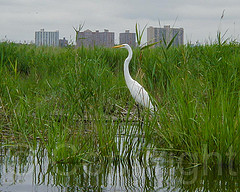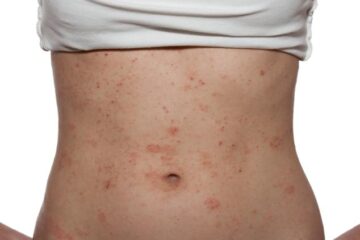Why Hard Water in Winter is Especially Harmful

Wintertime is hard on the skin for a number of reasons. In most regions, cold air is also extremely dry. Skin in the wintertime tends to become dry and cracked. Running the heater indoors also dries out the air inside homes and businesses. Those with certain skin types are also more prone to acne and breakouts in the winter due to the dry air and abrasive wind. In these conditions, we do everything we can to keep our skin (and hair) well-moisturized and healthy.
We put on moisturizers, take frequent hot showers, and apply conditioner. However, what happens when the water in your shower and the water you wash your hands with is making your winter skin worse? If your home is like 90% of homes in North America – running hard water – then this is an unfortunate truth. Hard water is mildly harmful to skin all year long, but hard water in winter is at its most harmful when your skin is already dry from the dry outdoor and indoor air.
Here are the four ways that hard water in winter is more harmful than at other times of year, and what you can do to reverse or prevent that damage.
Your Skin is Already Dry Enough
Hard water is a very common type of tap water containing excess harmless minerals, mainly chalky metal-types like calcium and magnesium. Iron is also common, along with the municipally added fluoride and trace amounts of chlorine. The minerals in hard water are drying on contact, which is why your hands feel dry after washing them (and what leaves that white residue called “scale” on everything).
When you wash your hands, shower, bathe, and wash your hair, your skin and hair are dried out by contact with these minerals. Minerals left as a residue on your skin can continue to sap moisture or prevent moisture from reaching your skin.
This can increase the skin problems you experience like rashes, cracked skin, and capping in the colder months. When you’re already battling these symptoms, having hard water in winter only makes the situation worse.
Worsening Wintertime Hair Breakage
Taking care of your hair in the winter can also be a challenge. Split ends and hair breakage is common in the winter dry and cold. Many people have to work harder to keep their hair in good condition when the weather gets cold. Hard water makes this even more challenging. When you wash your hair in hard water, first the passing minerals sap moisture from the strands. Then, the water and your final rinse leave a mineral residue in your hair which leaves your hair dull, laden, and more prone to dryness, even with leave-in conditioner applied.
Fighting Winter Acne and Breakouts
The minerals in hard water don’t just dry out your skin and leave a residue on your hair – they can also clog your pores. Hard water carries too many microscopic particles dissolved in the water. When you rinse, these mineral particles can get clogged in open pores, forming a scale over your skin that can create small pockets of irritation or infection. In other words, hard water causes some people to experience breakouts.
Hard water acne is even more likely in the winter when your skin is in a weakened state. Those prone to winter acne will suffer greater symptoms when washing with hard water. It can be tough to take care of your face and shoulders when the water you wash with is part of the problem.
Reduces Water Pressure for Hot Showers
Last but certainly not least, hard water even reduces the comfort of a hot shower. Even if you have a moisturizer and conditioner routine that’s keeping your skin in good condition, hard water in winter can make your hot showers shorter and with less water pressure. By building up inside your pipes, the scale from hard water slowly constricts water flow, which weakens your water pressure and the flow of your hot water. Homes that have been running hard water for a decade or more can even experience non-drain clogs and stoppages so you can’t even enjoy a hot shower at full blast.
Winter is hard enough for your skin without the additional challenges and harmful drying effects of hard water. Hard water is troublesome enough during the rest of the year, but the negative effects become even more harmful to your skin, hair, and pipes in the winter. The best way to stop hard water from damaging your skin in the winter is to install a home water softener so that every sink and shower runs softened, mineral-free water that no longer dries or clogs your winter skin.
For more on how to resolve your home hard water concerns, contact us today!



